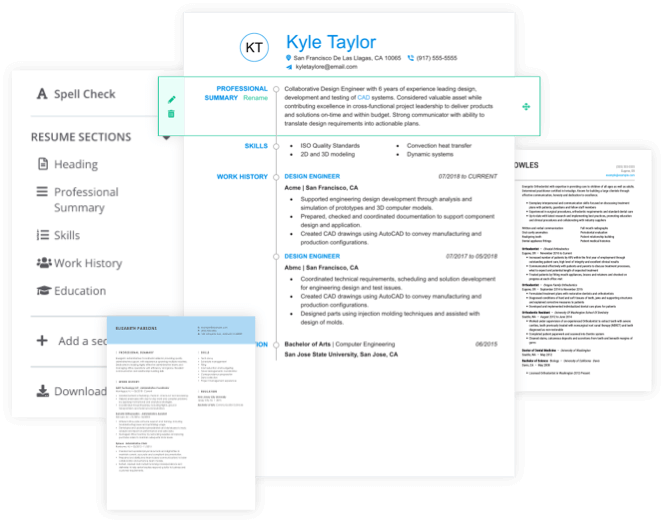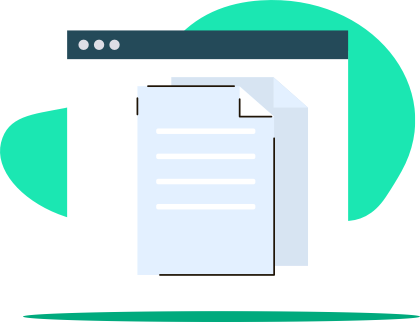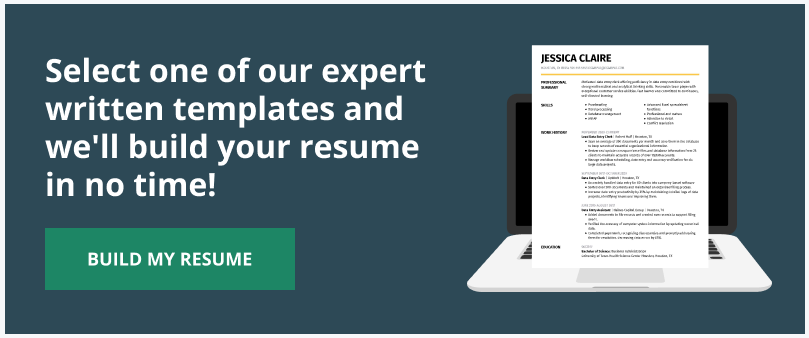- Featured in:

Resource room teachers, also known as special education teachers, are responsible for educating students with intellectual disabilities and behavioral problems. The field is usually considered to be more difficult than regular teaching, but it appeals to patient individuals with a love of children and a desire to teach special needs students. Most resource room teachers are employed by public school systems, but some work for private and parochial schools. Resource room teachers typically report to a school administrator such as a principal or dean.
Need cover letter guidance? Add a cover letter to your resume using our cover letter formats how-to guide and add value to your resume.
Boost your resume with an extra click. Our cover letter templates match our resume templates’ designs for a cohesive application. Use a template in our builder to help you quantify and expand upon the experience from your resume and impress employers.
Resource Room Teacher Duties and Responsibilities
Resource room teachers teach and mentor special education students according to their individual needs. They’re often assigned other tasks that vary from school to school, but in general, all resource room teachers do the following at some point in their careers:
Develop Individualized Education Programs
Resource room teachers are usually tasked with developing individualized education programs for their students. IEPs, as they are often called in the education field, take the needs and learning goals of individual students into consideration instead of using a one-size-fits-all approach to learning and teaching.
Plan, Assign, and Organize Activities
Resource room teachers plan daily activities for their students. They also organize these activities in advance to ensure students learn from them and their special needs are taken into consideration.
Meet with Parents
Like all teachers, resource room teachers regularly meet with parents to discuss various concerns. They often address issues such as student performance and behavior, and they may work with parents to set learning goals and determine how to make activities more interesting for their children.
Assess Student Performance
Resource room teachers typically do not use the same grading system as other teachers, but they are still responsible for accurately assessing the academic performance of their students. They may use assessment guidelines provided by the school or school system.
Maintain Classroom Structure
Order and structure must be maintained in the classroom at all times. This structure allows students to learn in a safe and calm environment. Resource room teachers and their assistants must maintain control and order in the classroom to achieve their goals.
Resource Room Teacher Skills and Qualifications
The skills and qualifications needed to become a resource room teacher vary from school system to school system, but in most cases, a bachelor’s degree in special education is required. Schools and other educational institutions also seek candidates with the following abilities and traits:
Special education knowledge – resource room teachers should have a strong understanding of the concepts and principles governing the special education field. They should also be used to interacting with students with learning disabilities and other mental challenges
Knowledge of learning disabilities – since they regularly interact with students with learning disabilities and behavioral problems, resource room teachers should understand the underlying causes of these problems and disabilities
Teaching knowledge – resource room teachers know how to teach students and help them learn. They also know how to make learning fun for all types of students
Patience – working as a resource room teacher can be stressful, but successful teachers must be patient with their students if they want to create a calm and productive learning environment
Interpersonal skills – resource room teachers must be capable of effectively communicating with their students, coworkers, administrators, and parents
Resource Room Teacher Education and Training
Anyone interested in becoming a resource room teacher will need to obtain a bachelor’s degree in special education from an accredited four-year college or university. During their studies, students take courses in elementary education, effective teaching practices, pedagogy, and general science and mathematics. A significant amount of on-the-job training is required, and after earning a degree, students will need to take a state examination to become certified. Some positions may require teachers to obtain a master’s degree at some point, but a bachelor’s is usually sufficient for entry-level positions.
Resource Room Teacher Salary and Outlook
According to the Bureau of Labor Statistics, the median yearly wage for special education teachers (resource room teachers) is $59,980. Those in the top 10th percentile earn more than $95,320 annually, while those in the bottom 10th percentile earn less than $38,660 annually. Most resource room teachers are provided with benefits such as health insurance, paid vacation, and parental leave.
The employment rate for special education teachers is expected to increase 8 percent through 2026. This rate of growth is on par with the national average of 7 percent, but it is expected to rise as more children become labeled as “special needs” and society becomes more aware of learning disabilities.

Helpful Resources
National Association of Special Education Teachers
NASET is currently the largest and oldest professional association for those in special education. The organization aims to advance the needs of special education teachers and educate the public about the role of special education in the school system and society in general. Membership benefits include discounts on education resources, free classroom handouts, and access to video lectures
The Survival Guide for New Special Education Teachers
written with 21st-century special education professionals in mind, The Survival Guide for New Special Education Teachers helps those new to the profession remain sane while adjusting to their career. The book covers topics such as managing classrooms, dealing with career stress, and collaborating with other teachers. It’s also packed with real-life commentary from veteran teachers and novices alike, which can help readers understand they are not alone during difficult times
The Special Educator’s Toolkit: Everything You Need to Organize, Manage, and Monitor Your Classroom
according to the author of The Special Educator’s Toolkit, preparation and planning are the keys to success for resource room teachers. The book addresses important topics, such as classroom organization methods and student support, and it provides practical and helpful tips for dealing with school administrators and parents. Written with K-12 educators in mind, this book is perfect for anyone considering the resource teaching field




